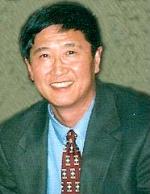

 | | 
|
|---|
| Dr. Li Li Ji | 
|
|---|---|
Department of Kinesiology/Nutritional Science and Aging "The Cell Found Fire: The Utility of Free Radicals in Exercise-Induced Adaptations" |
Date: Thursday, April 17, 2008 Location: Studio Theatre, Tower Hall
500 N. Wilcox Street
Joliet, Illinois 60435
815-740-3360Dinner: N/A — but many of us are meeting in the cafeteria for dinner before the meeting. Please let us know if you are planning to eat at the cafeteria so that we can insure that they will be prepared to handle the extra people.
Cost: NO COST, but we are providing no dinner.Note: The Joliet Section does not have a meal or social hour associated with their meetings. Members normally eat at home, at a nearby restaurant (see short list below), or at the University Cafeteria. The Cafeteria opens at 5:00 p.m. and closes at 6:30 p.m. sharp. Those wishing to use the cafeteria should plan to arrive by 5:30.
Restaurants in the area:
REGISTRATION
We like would those coming to our meeting to register with Gail at the Chicago ACS Section office. If there are any last minute changes or if some additional information becomes available then you can be contacted. This is especially important for those planning on having dinner at the University cafeteria. You can phone the Section Office 847-647-8405 and leave your name and contact information or simply register by email (chicagoacs@ameritech.net) or via this web-site.
Please REGISTER ON LINE
7:00 PM General Meeting (no dinner or pre-meeting social hour)
Dr. Li Li Ji, Department of Kinesiology/Nutritional Science and Aging, University of Wisconsin-Madison
Abstract: Contraction-induced production of reactive oxygen species (ROS) has been shown to cause oxidative stress to skeletal muscle. However, new research shows that ROS could serve as important chemical agents for cellular adaptation to exercise. This talk will focus on the utility of ROS and related signaling pathway in the regulation of uncoupling proteins, superoxide dismutase and other redox-sensitive gene products during exercise and the biological significance of the adaptation.
Biography: Dr. Li Li Ji received his B.S. in 1976 from East China Normal University and his M.S. in 1982 and Ph.D. in 1985 from the University of Wisconsin-Madison. He is currently Professor and Chair of the Department of Kinesiology, School of Education, University of Wisconsin-Madison.
Dr. Ji's research areas of expertise include free radical induced oxidative injury with exercise, aging, and related pathological conditions; the role of antioxidants in the prevention of oxidative damage; and regulation of hepatic lipogenic enzymes with diet and exercise.
Oxygen free radicals and antioxidant protection are a central paradigm of Dr. Ji's research. Reactive oxygen intermediates are generated from normal cellular metabolic processes such as mitochondrial respiration or from certain physiological and pathological states. Numerous diseases are now identified to be related to free radical chemistry.
The following problems are representative of his research group’s interests.
Exercise: Strenuous exercise is associated with increased oxygen consumption and free radical production. Tissues actively involved in exercise, such as skeletal muscle, liver and heart, are exposed to an increased oxidative stress. Deficiency of antioxidant nutrients exacerbates the damage, whereas supplementation of various antioxidants and exercise training may offer increased protection.
Heart Post-ischemic Injury : Temporary interruption and restoration of blood flow to the heart can cause biochemical and functional damage to the myocardium. Oxygen free radical may be responsible for this ischemia-reperfusion injury. His research has shown that free radicals are directly involved in the pathogenesis using an open-chest rat heart model. Training and supplementation of antioxidants make the heart more resistant to reperfusion injury, whereas depletion of certain antioxidants, such as glutathione, enhances oxidative damage.
Parking: Park in any available lot.
Menu: No meal is served. You may eat at the University cafeteria, also in Tower Hall. The President's Room, next to the cafeteria has been reserved for us. Or you may eat at one of the nearby restaurants:
Updated 4/3/08